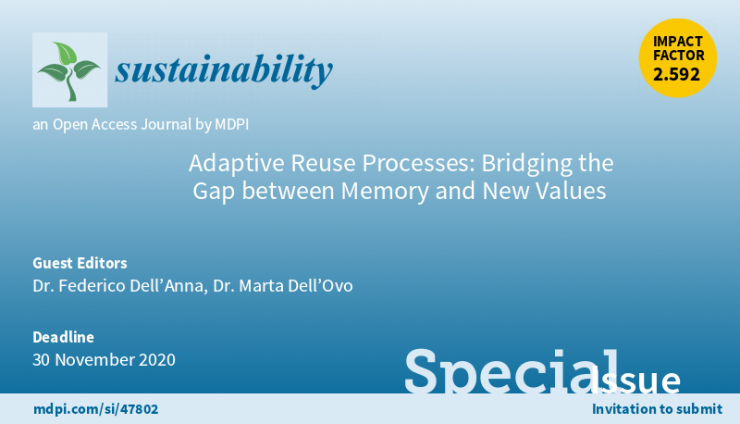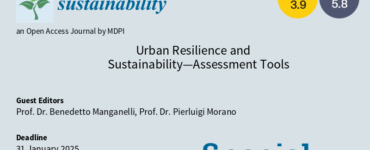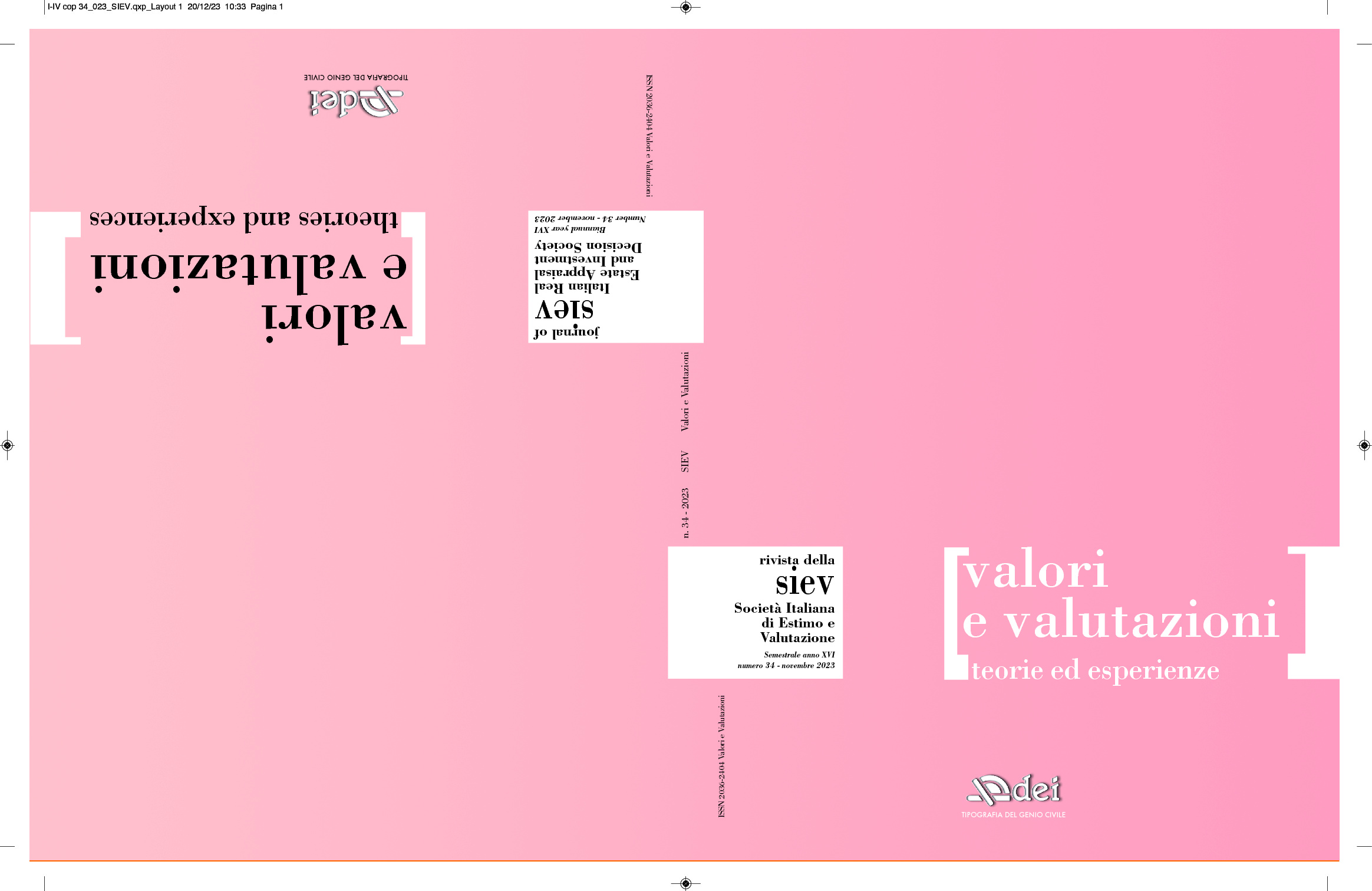A special issue of Sustainability (ISSN 2071-1050).
Deadline for manuscript submissions: 30 November 2020.
Dear Colleagues,
We are pleased to announce the launch of a new Special Issue on the exploration of new values generated by buildings and urban adaptive reuse.
Adaptive reuse is defined as “a process that changes a disused or ineffective item into a new item that can be used for a different purpose” (Department of Environment and Heritage, 2004).
Through our recent experiences in urban redevelopment, it has emerged that the traditional forms no longer work, which means that we need to rethink and reinvent the existing urban renewal processes. In several cities, the number of underused or vacant buildings is increasing at an alarming rate, which has a negative impact on the urban context under several dimensions. More generally, adaptive reuse is a multi-dimensional problem that requires the inclusion of stakeholders’ opinion aided by decision support systems. In this perspective, abandoned buildings and places can be considered as opportunities to establish new functions aiming to trigger economic, environmental, and social regeneration.
In this context, the concept of reuse is becoming more and more important. As an example, the social and technological changes that have characterized our recent decades have significantly altered the productive national system, and today, there are thousands of cultural assets of architectural quality that constitute a real resource for the territory. In addition, redevelopment interventions must be able to change the characteristics of a space that has lost its original function in relation to the mutation of the temporal and social context. In this sense, unexpected events can lead to innovative visions for existing buildings and places to respond to new necessities. In fact, since the context experiences a continuous transformation over time current emergency situations require a rapid response, the adaptive reuse project must look beyond transformations themselves, in terms of change of use. Indeed, projects must be based on sustainable features, but also on innovation, resilience, and flexibility principles.
Given these premises, adaptive reuse could be the answer to both preserving memory and generating new values looking at a more holistic vision, i.e., integrating social, economic, environmental, urban, and political policies in agreement with the Sustainable Development Goals (United Nations, 2015).
The Special Issue would like to address the different sides of adaptive reuse:
- Built environment: Cultural heritage vision changes from an asset to be conserved to capital to be enhanced and reused (SDG 7, SDG 11);
- Urban planning: Regeneration processes configuring the transversal interconnections between urban and territorial heritage, as cities are becoming one of the main testing workbenches for new solutions for buildings and places that aim to improve environmental quality at the local and global level (SDG 9, SDG 11, SDG 15);
- Urban policies: Regeneration strategies requiring new game rules at different multilevel governance to remove barriers in order to accelerate territorial regeneration and cultural and social innovation (SDG 13, SDG 17);
- Economy: New business models, based on the circular economy, needing to overcome the traditional model of the linear economy in order to meet the new sustainable objectives (SDG 1, SDG 8);
- Society: People’s involvement in transformation processes plays an important role in promoting community values. Developing community-based approaches can support strategies in influencing social interaction, change of attitude, lifestyle and behaviour (SDG 3, SDG 8).
All contributions that address adaptive reuse values, and not necessarily limited to the list above, are welcome.
Dr. Federico Dell’Anna
Dr. Marta Dell’Ovo
Guest Editors











Add comment